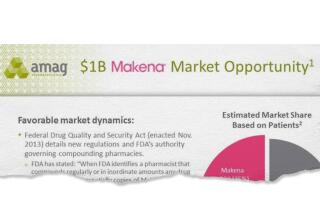FDA Recommends Painkiller Caution
- Share via
WASHINGTON — Federal regulators on Thursday urged doctors to think twice before prescribing several popular and controversial painkillers to their patients with histories of heart trouble.
Despite recent studies indicating that the drugs -- which include Pfizer Inc.’s Celebrex and Bextra -- may be associated with an increased risk of heart attack or stroke, the Food and Drug Administration said Thursday that it did not have enough concrete information to pull the blockbuster pharmaceuticals from the market.
“We think we need to take time to do a careful review,” said Dr. John Jenkins, director of the FDA’s Office of New Drugs, noting that some of the studies conflicted with other studies on the same drugs.
He said an agency advisory committee would meet in February to discuss the painkillers further.
Until then, the FDA is calling on physicians to consider the new risks and their patients’ individual histories before prescribing the drugs. In a public health advisory, the FDA told physicians to “consider this emerging information when weighing the benefits against risks for individual patients.”
For example, the FDA said, patients with a history of gastrointestinal bleeding may still be considered good candidates for Celebrex or Bextra, which do not produce such symptoms, because the risk of bleeding problems may outweigh the risk of cardiac problems.
During a conference call with reporters, Jenkins said doctors might want to prescribe different painkillers while the agency sorted out the “conflicting data” on the use of the nonsteroidal anti-inflammatory drugs, or NSAIDs, including those classified as Cox-2 inhibitors. Those medications inhibit the production of an enzyme that produces gastric inflammation.
In addition, the agency said it was ordering a review of so-called preventive studies that include Celebrex or Bextra to ensure that the new evidence of cardiac risks was taken into consideration. In these studies, drugs are tested in healthy individuals with a predisposition to a specific illness to see if they prevent that illness. It was such a long-term cancer prevention study that prompted the FDA’s alert Dec. 17 about Celebrex.
A similar study led to the FDA’s alert Monday about another NSAID, naproxen, sold over the counter as Aleve and by prescription as Naprosyn and Anaprox. The National Institute on Aging was testing whether Aleve and Celebrex could delay or prevent the onset of Alzheimer’s disease when Aleve was statistically linked to an increased risk of heart attack and stroke.
Thursday’s advisory also urged consumers who take Aleve or its generic over-the-counter formulations to strictly follow the directions on the labels and not take the drug for more than 10 days without first consulting a physician.
When first marketed in the late 1990s, the Cox-2 drugs -- which include Celebrex and Bextra -- were touted as painkillers that could relieve the symptoms of arthritis without causing gastrointestinal problems like bleeding. But critics say the drugs never lived up to that promise. Dr. Sidney M. Wolfe, director of Public Citizen’s Health Research Group, criticized the FDA’s actions on Thursday, saying the agency was siding with a large pharmaceutical company by recommending that some patients with a history of gastrointestinal bleeding might still be good candidates for Celebrex and Bextra.
Wolfe said that there was no “credible evidence” that either drug protected the gastrointestinal tracts of patients.
“Breathing extra life into [Celebrex and Bextra] is surely beneficial to Pfizer executives and stockholders but is a step backward for an agency that is supposed to be part of the Public Health Service,” he said.
Merck & Co. withdrew its top-selling arthritis drug, Vioxx, in late September after a study showed the painkiller -- also a Cox-2 inhibitor -- doubled the chances of heart attacks and strokes.
But Pfizer’s chief executive, Hank McKinnell, defended his top-selling drugs, saying the cardiovascular risk was minimal compared with the benefits of taking the painkillers.






